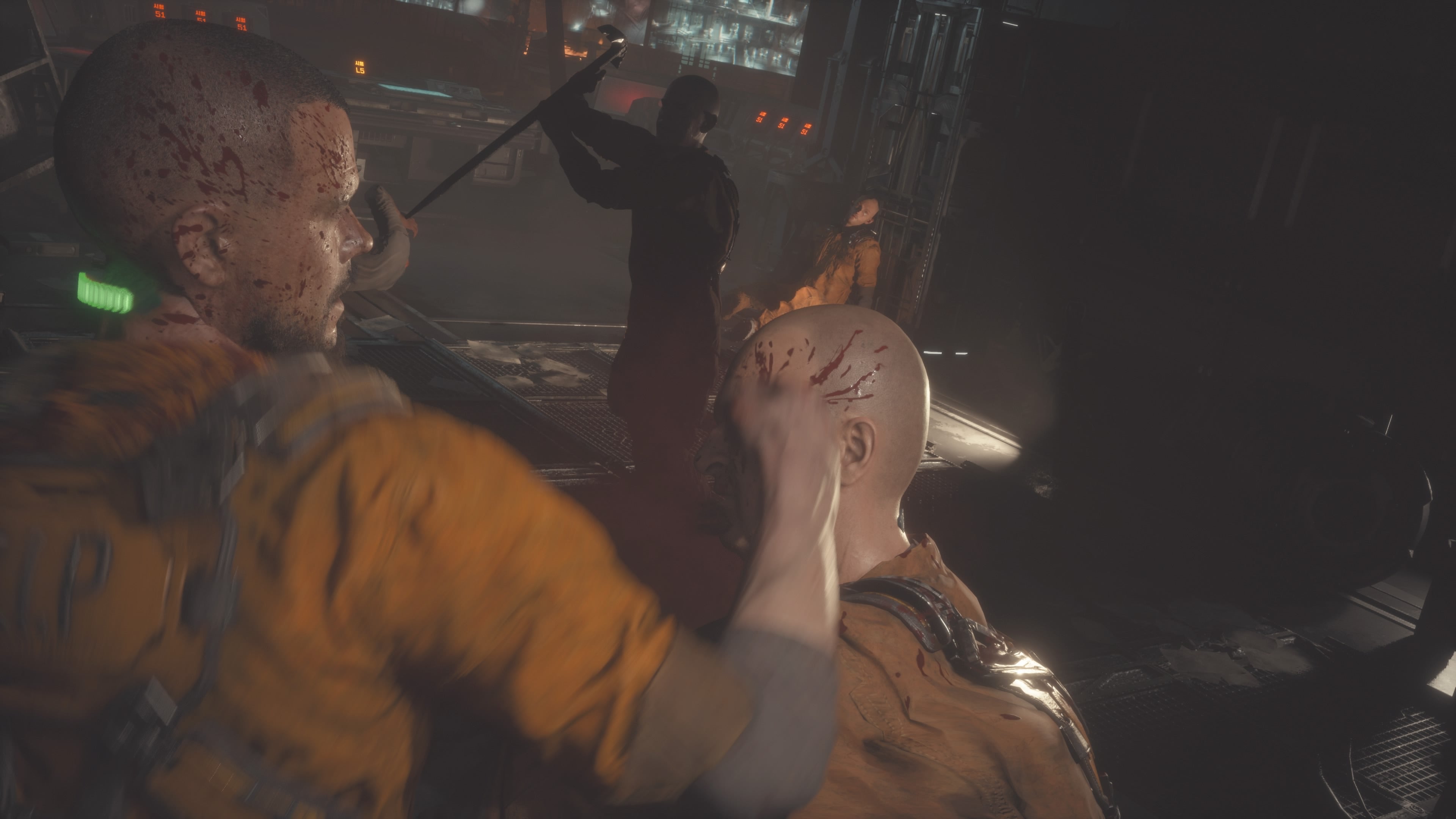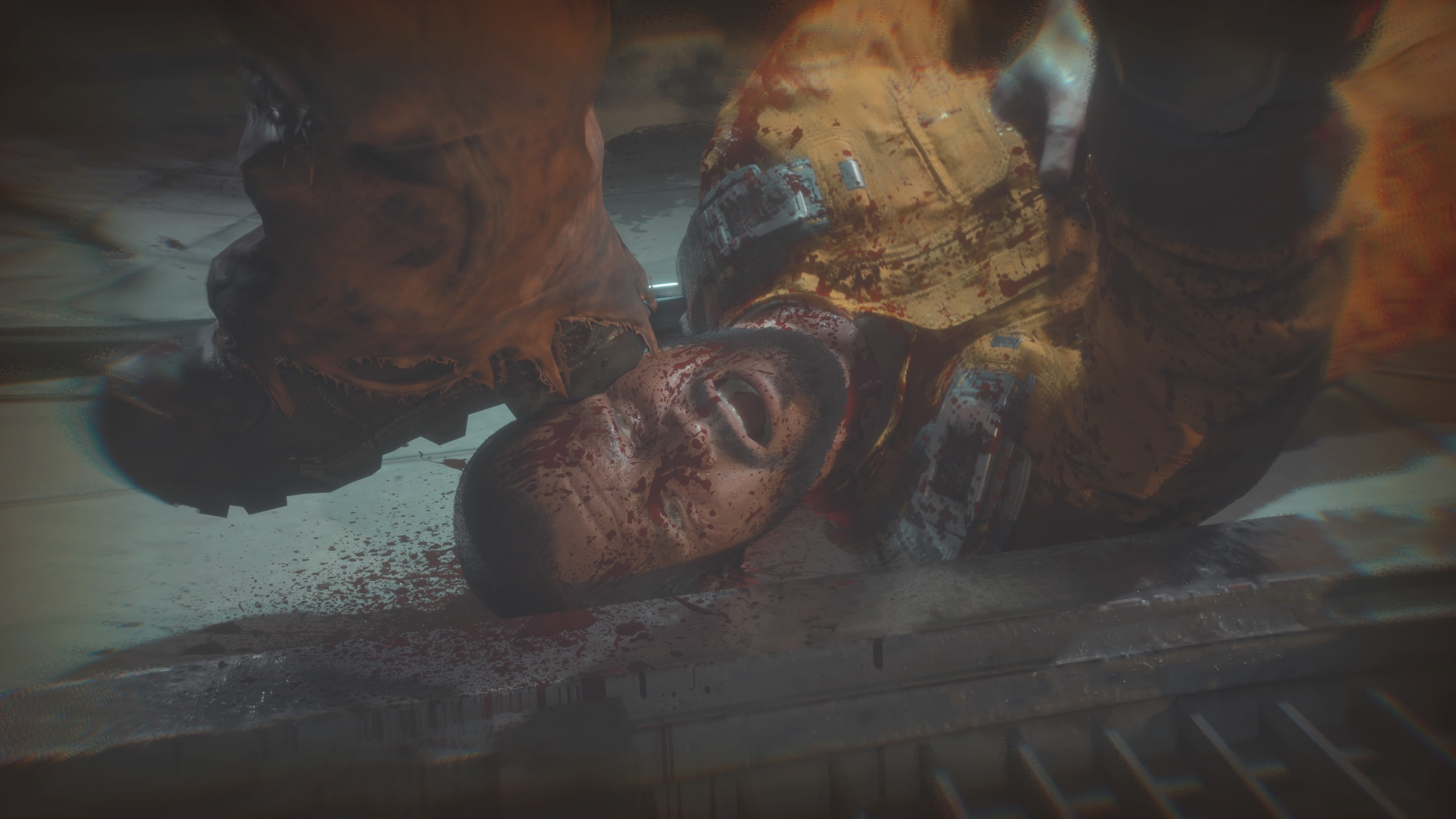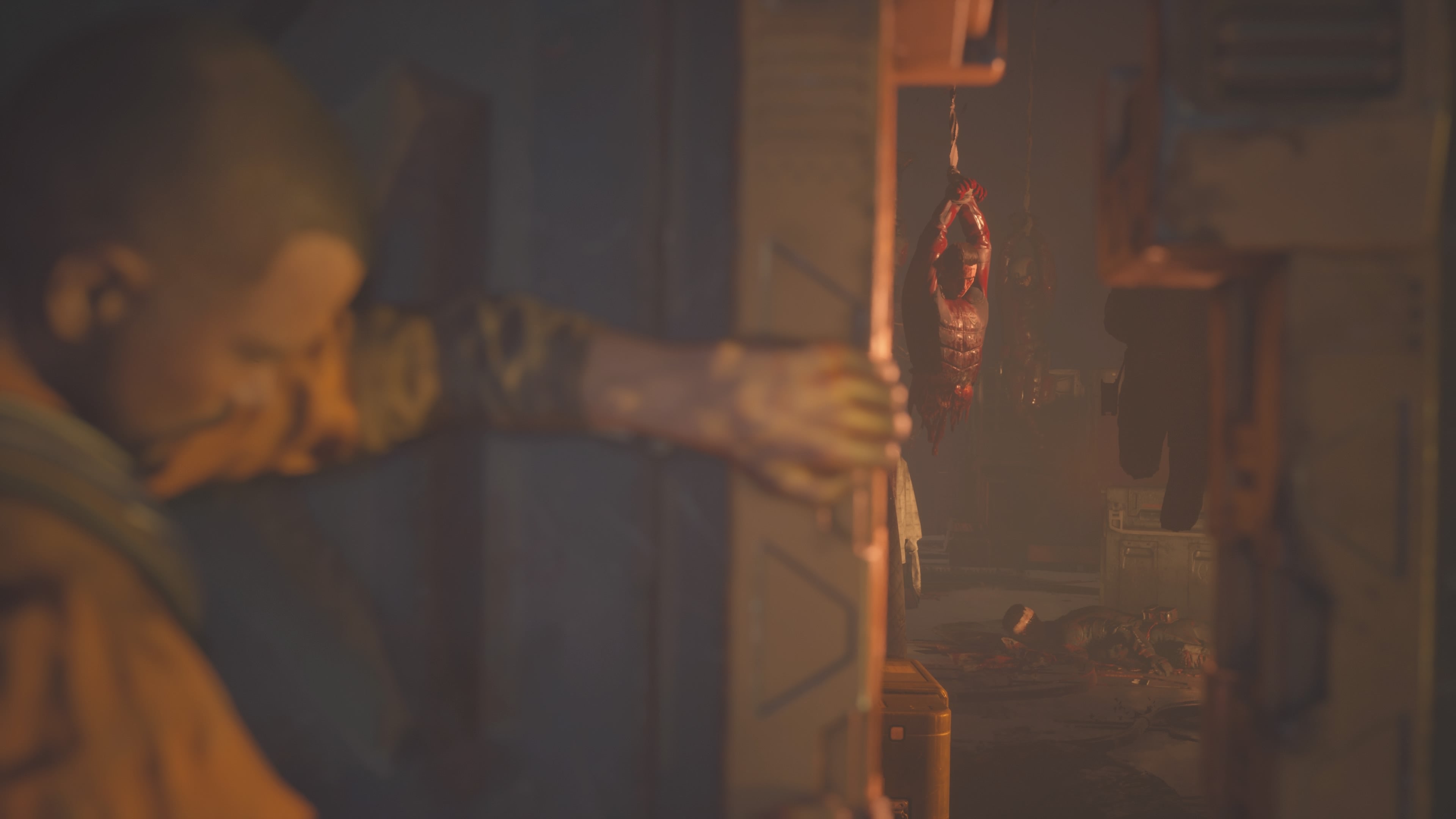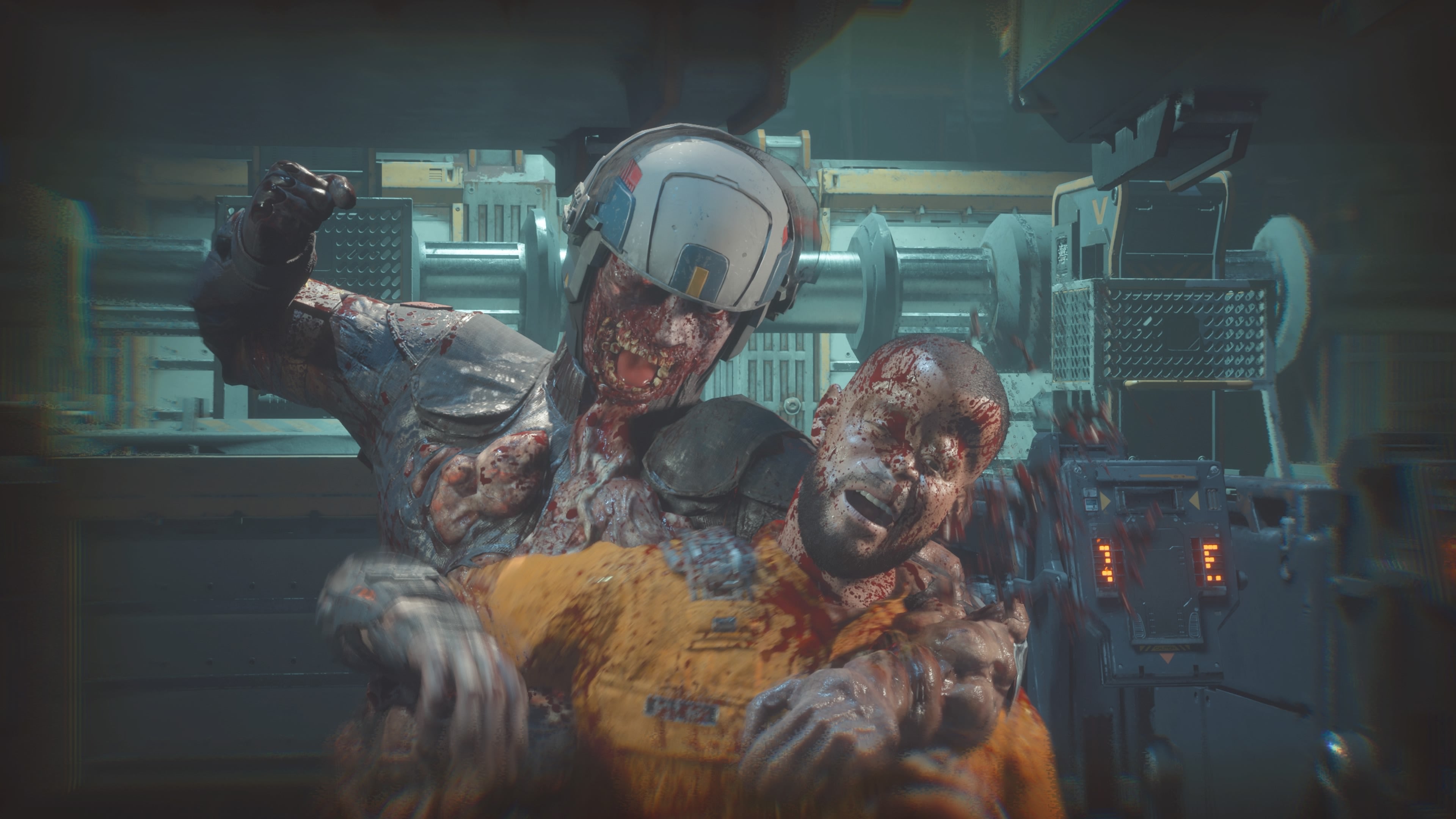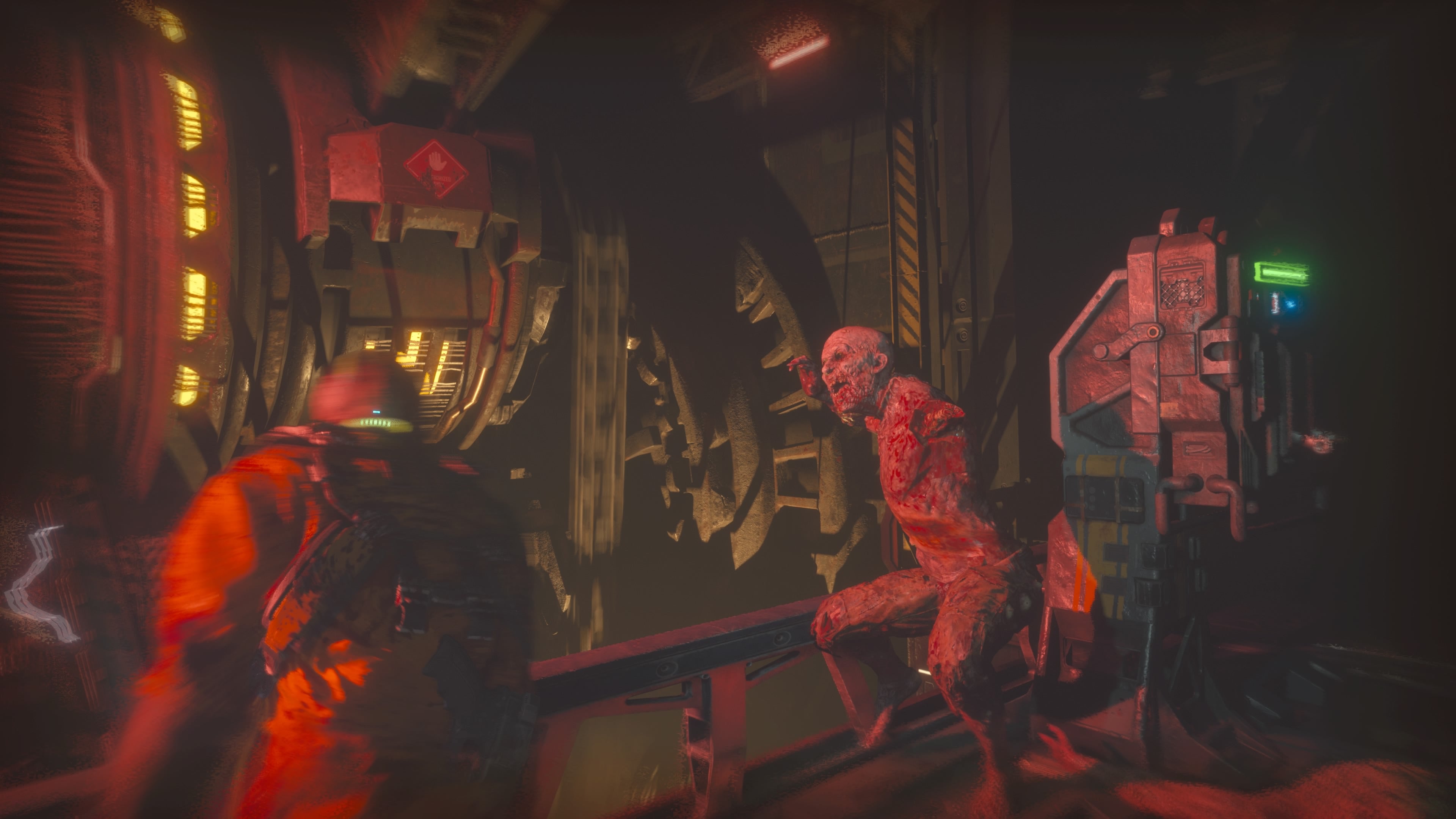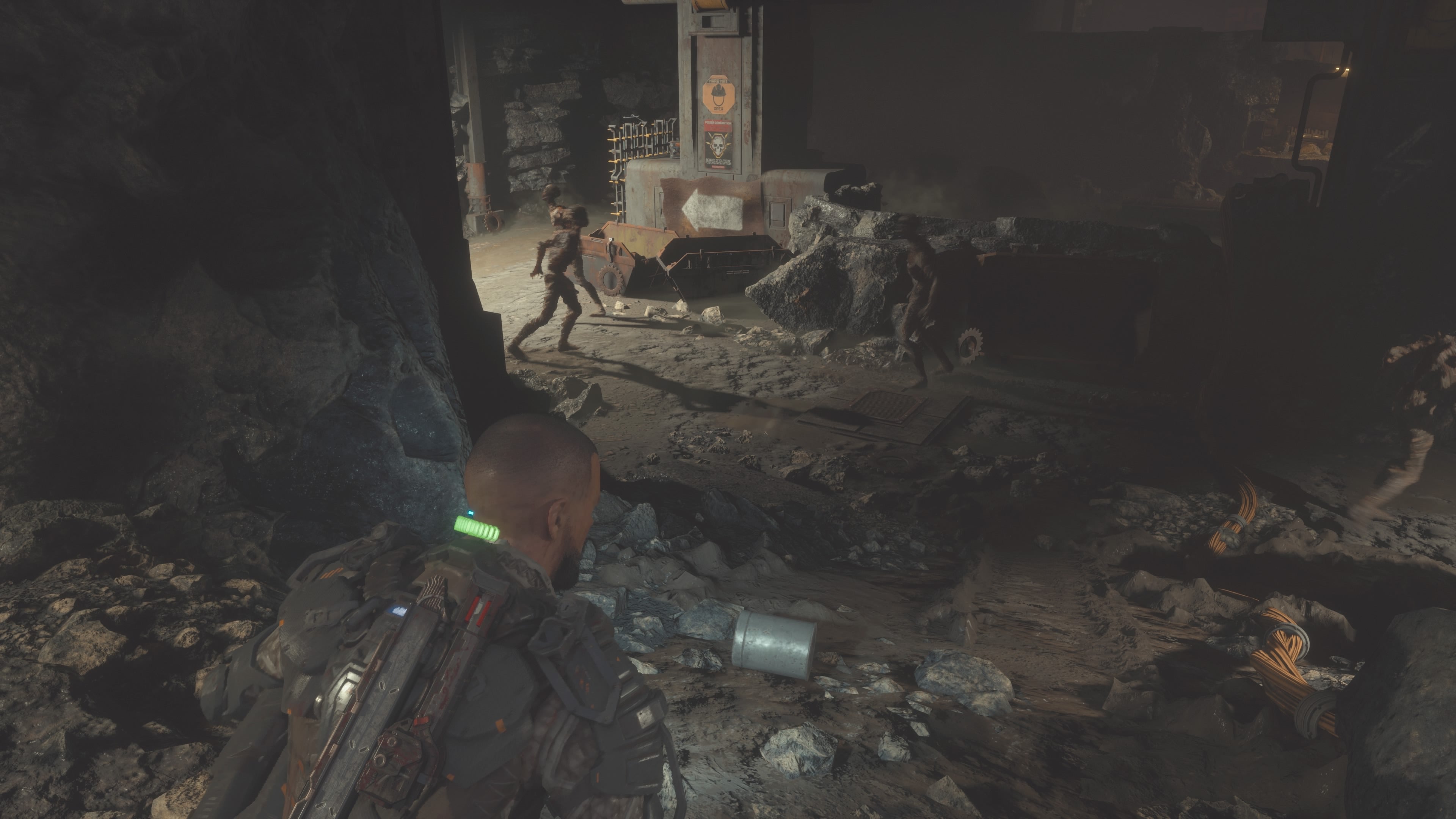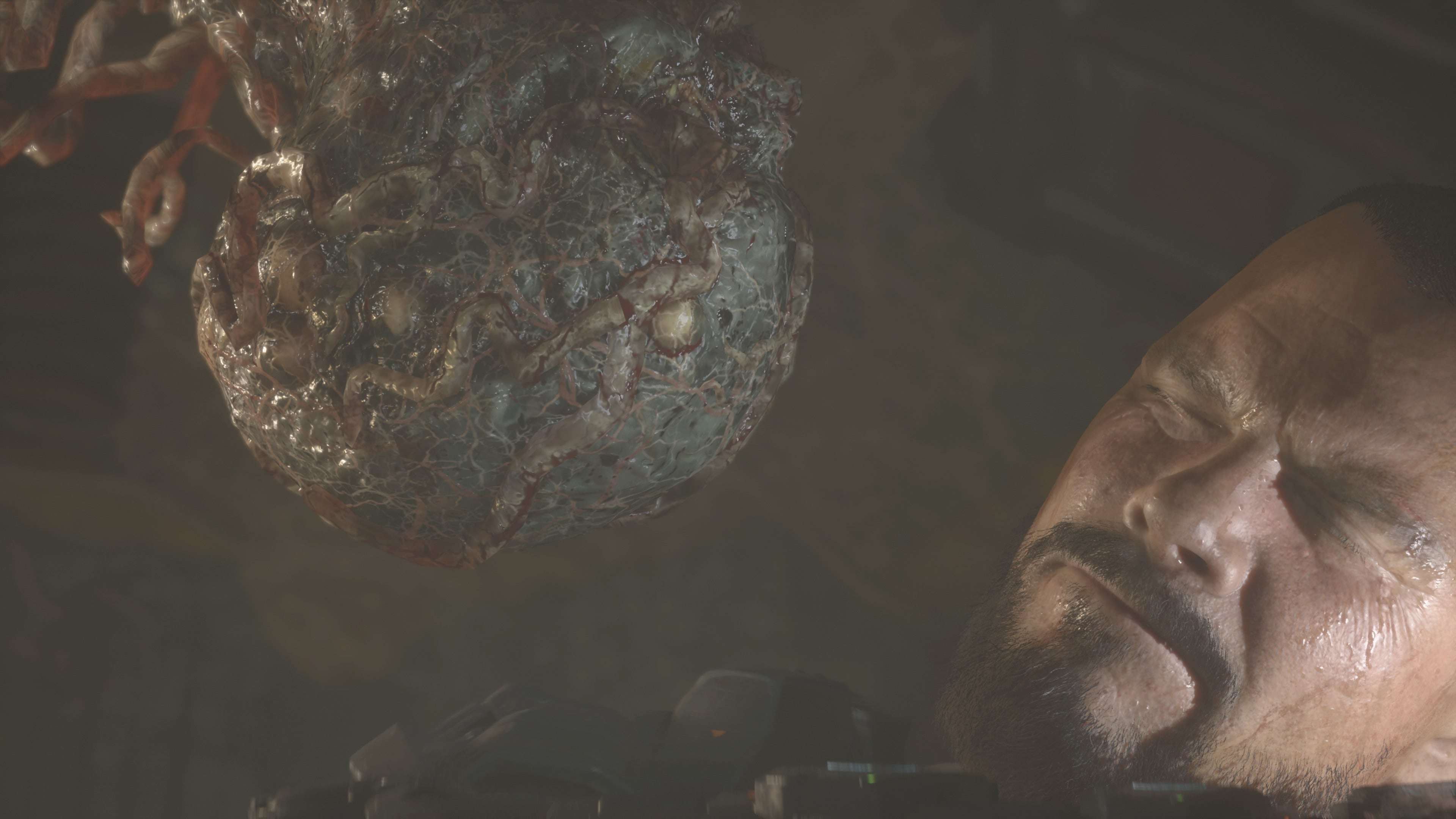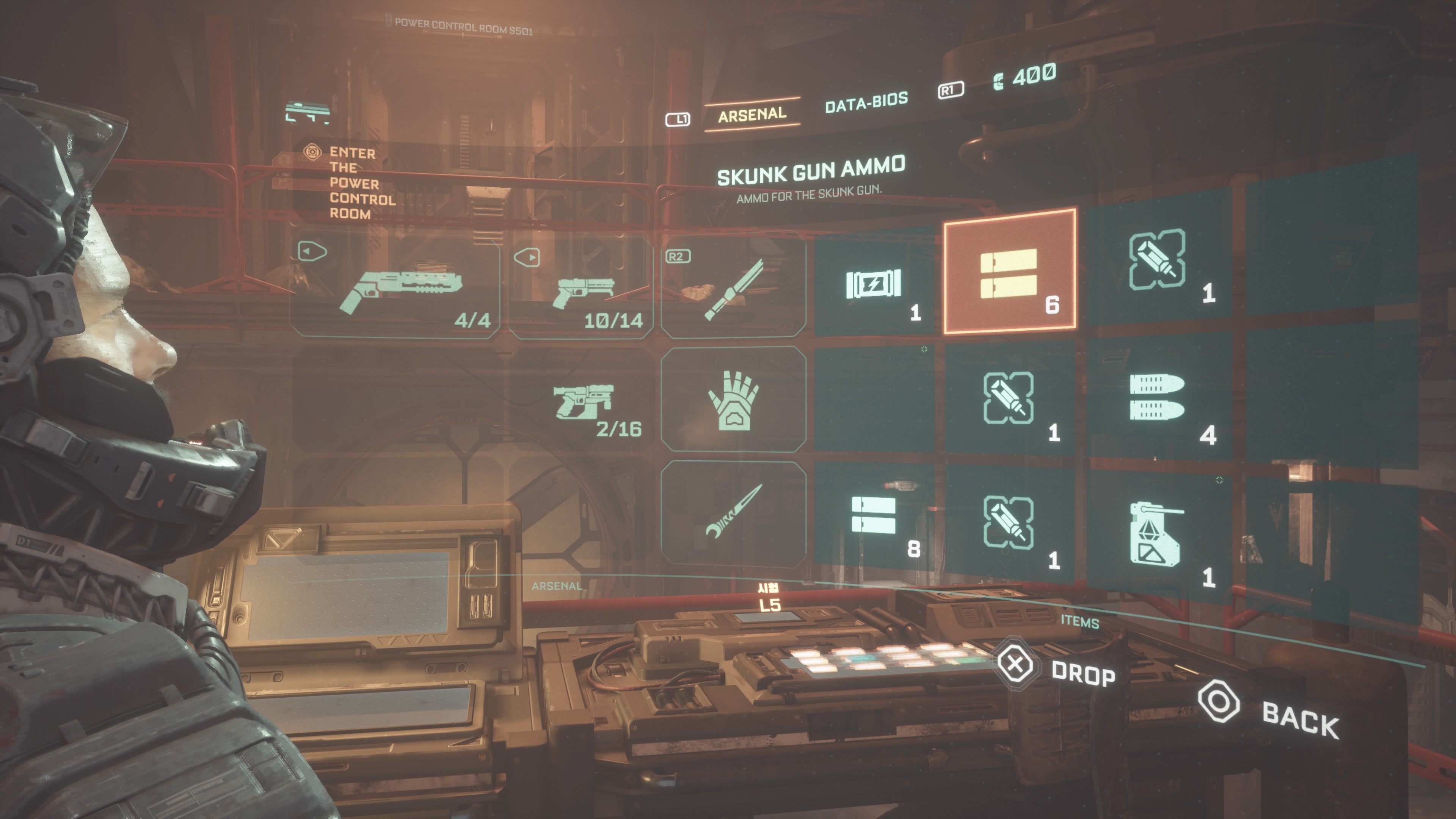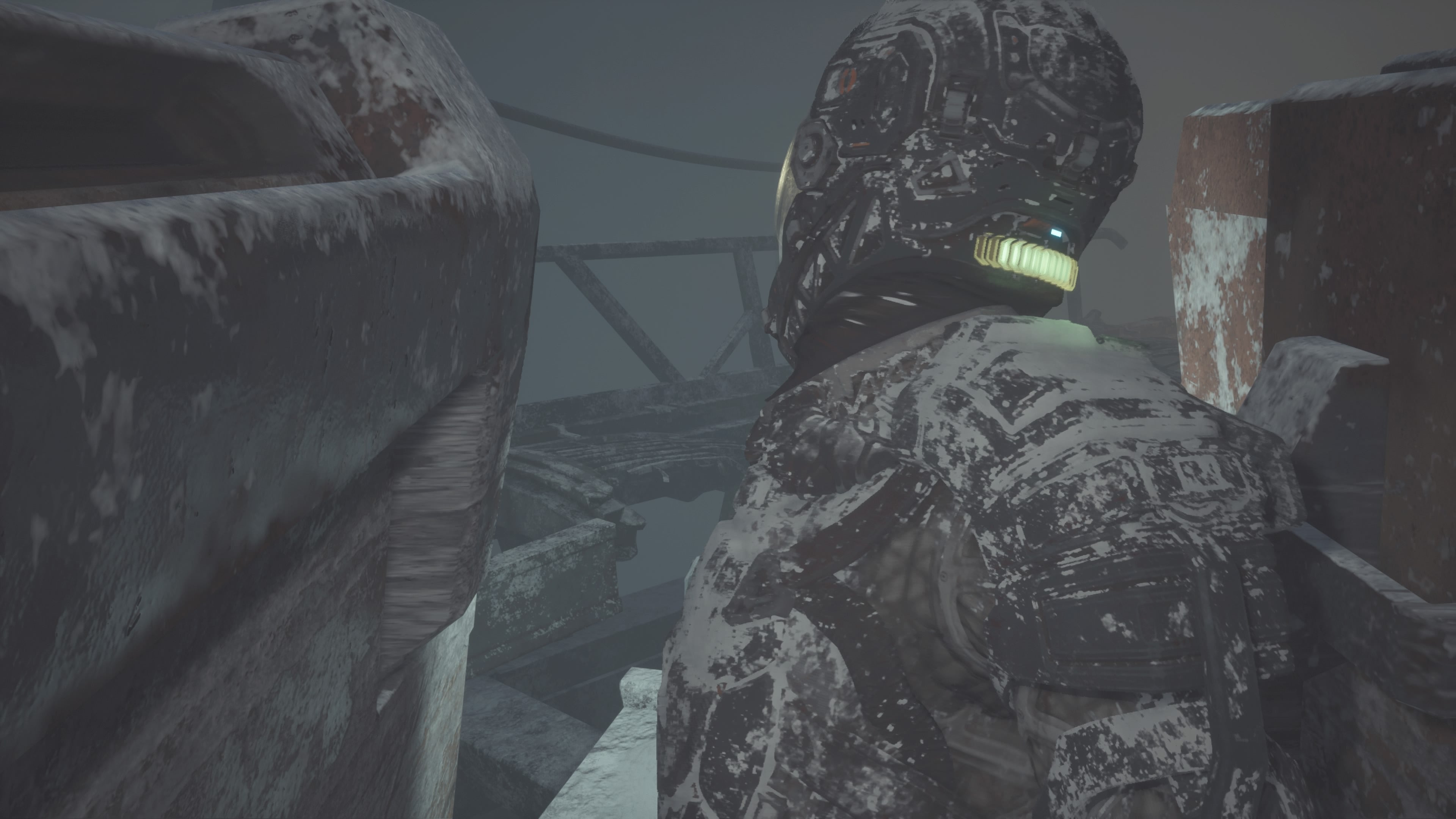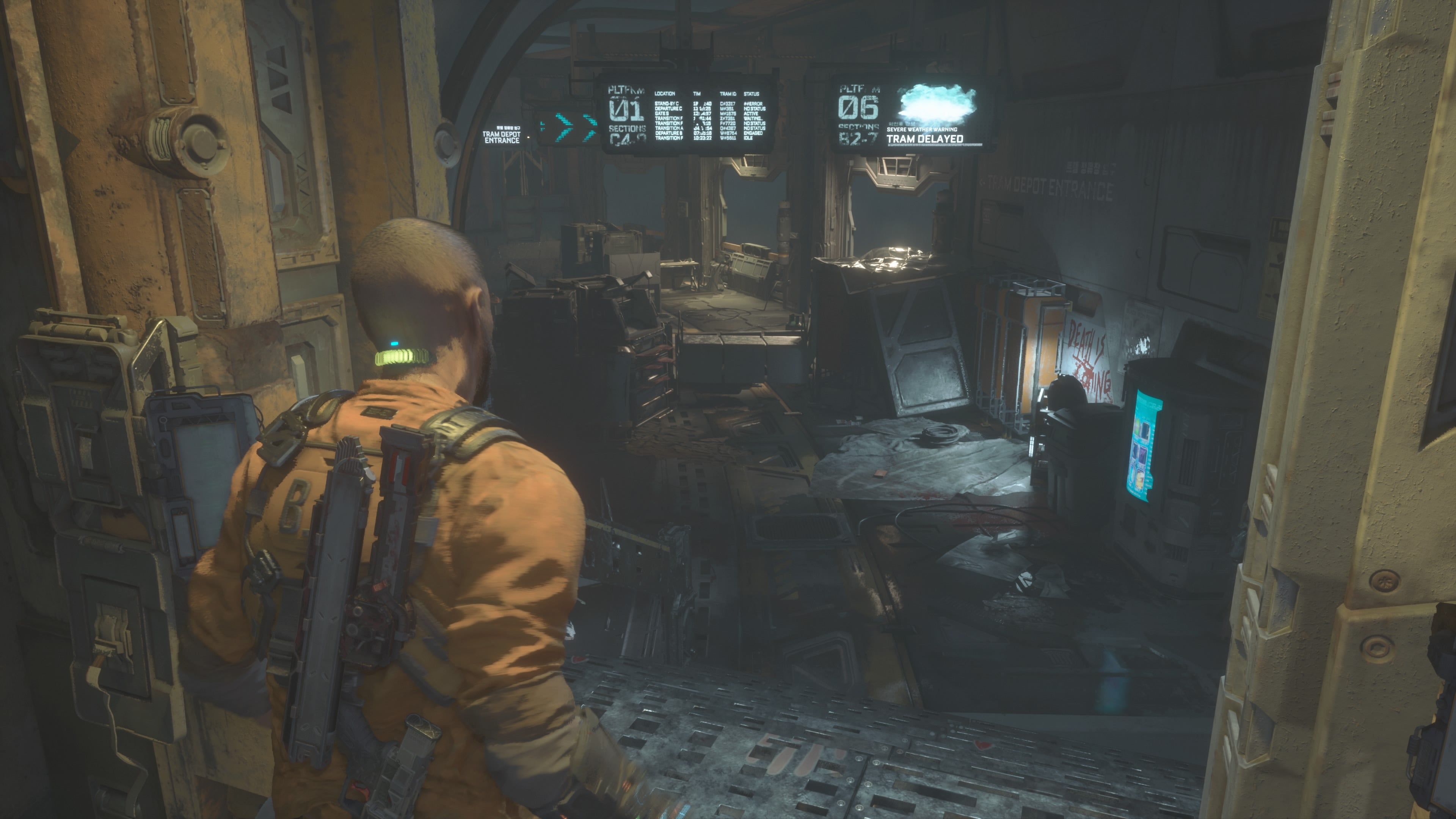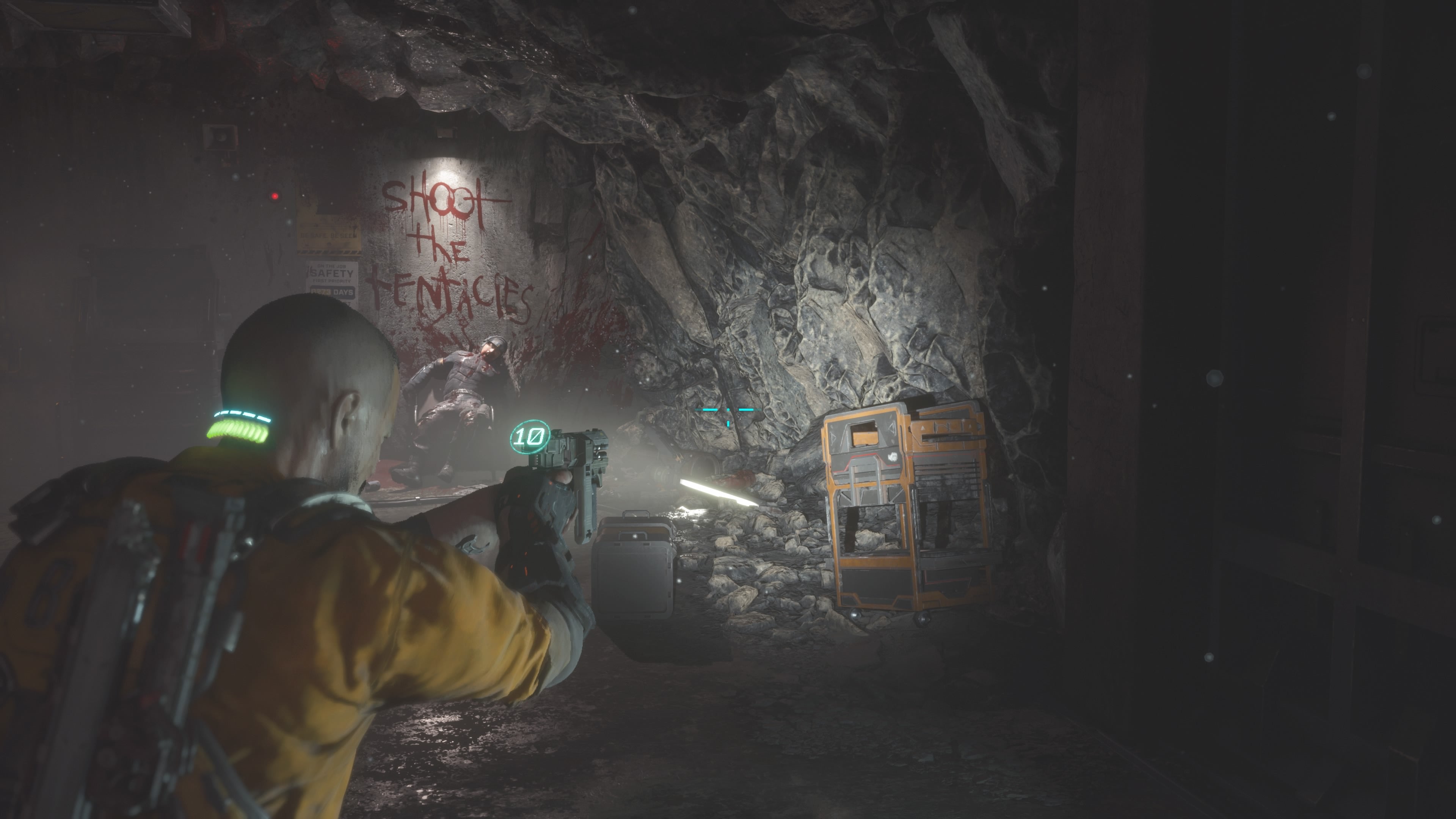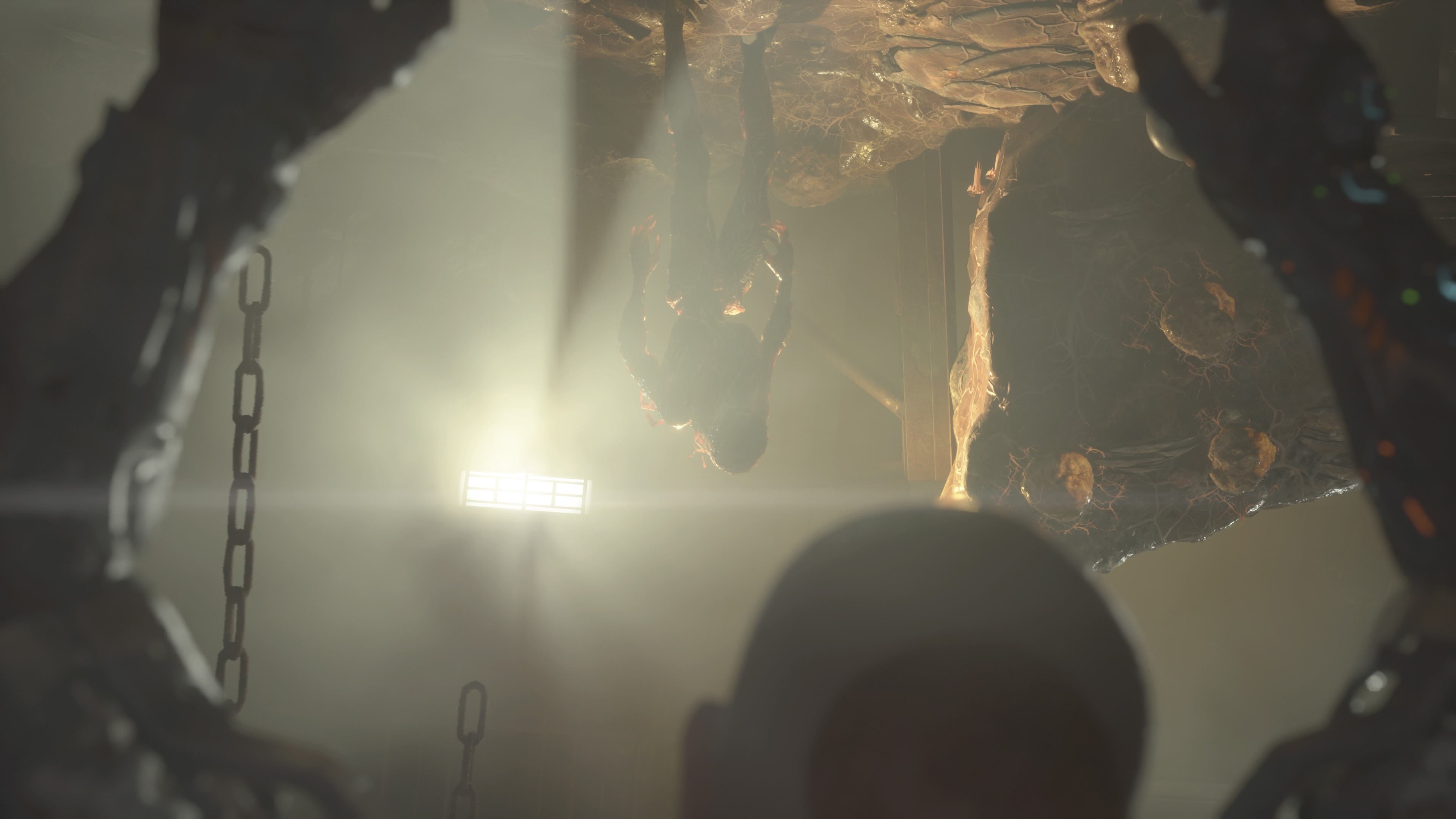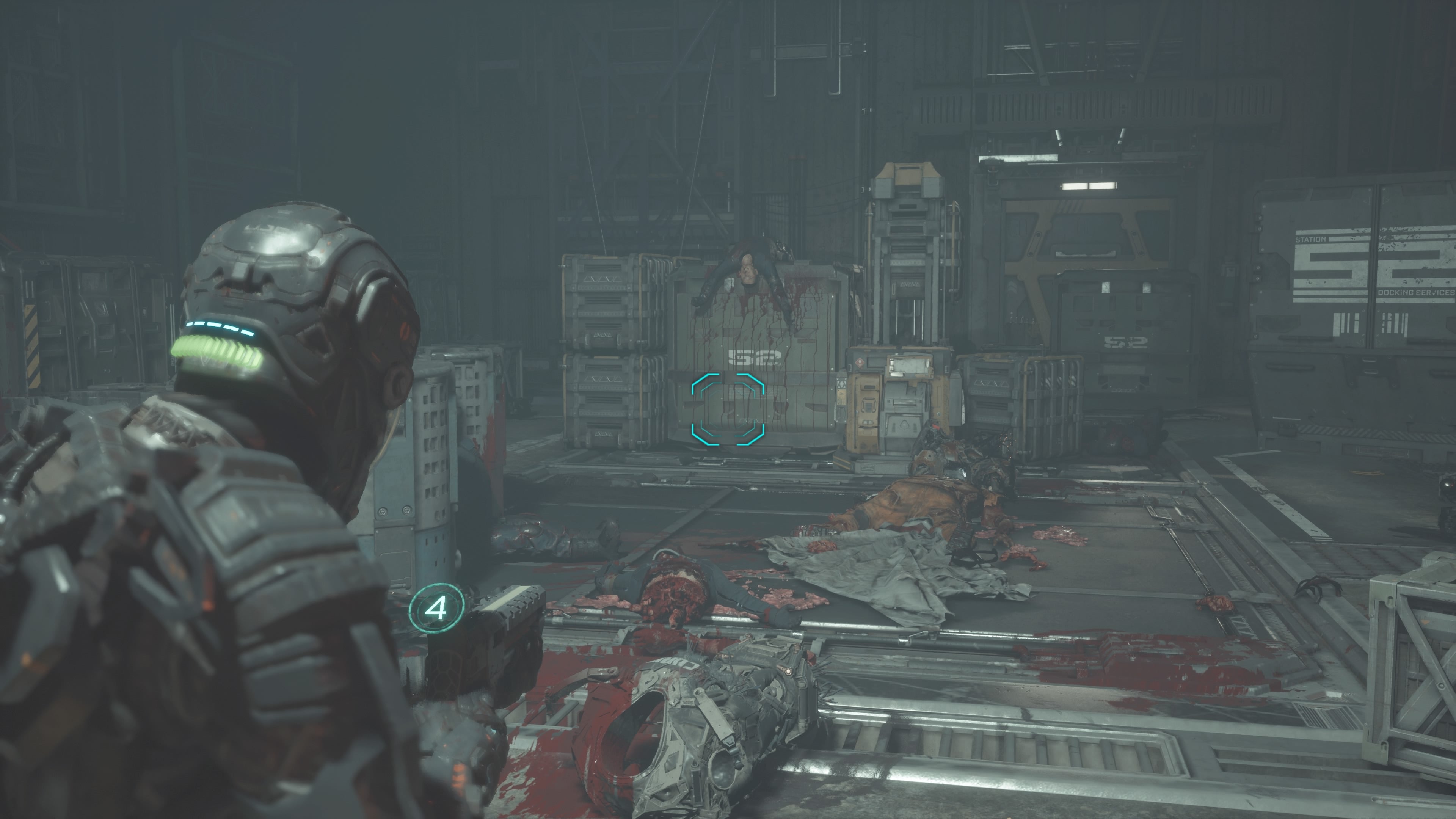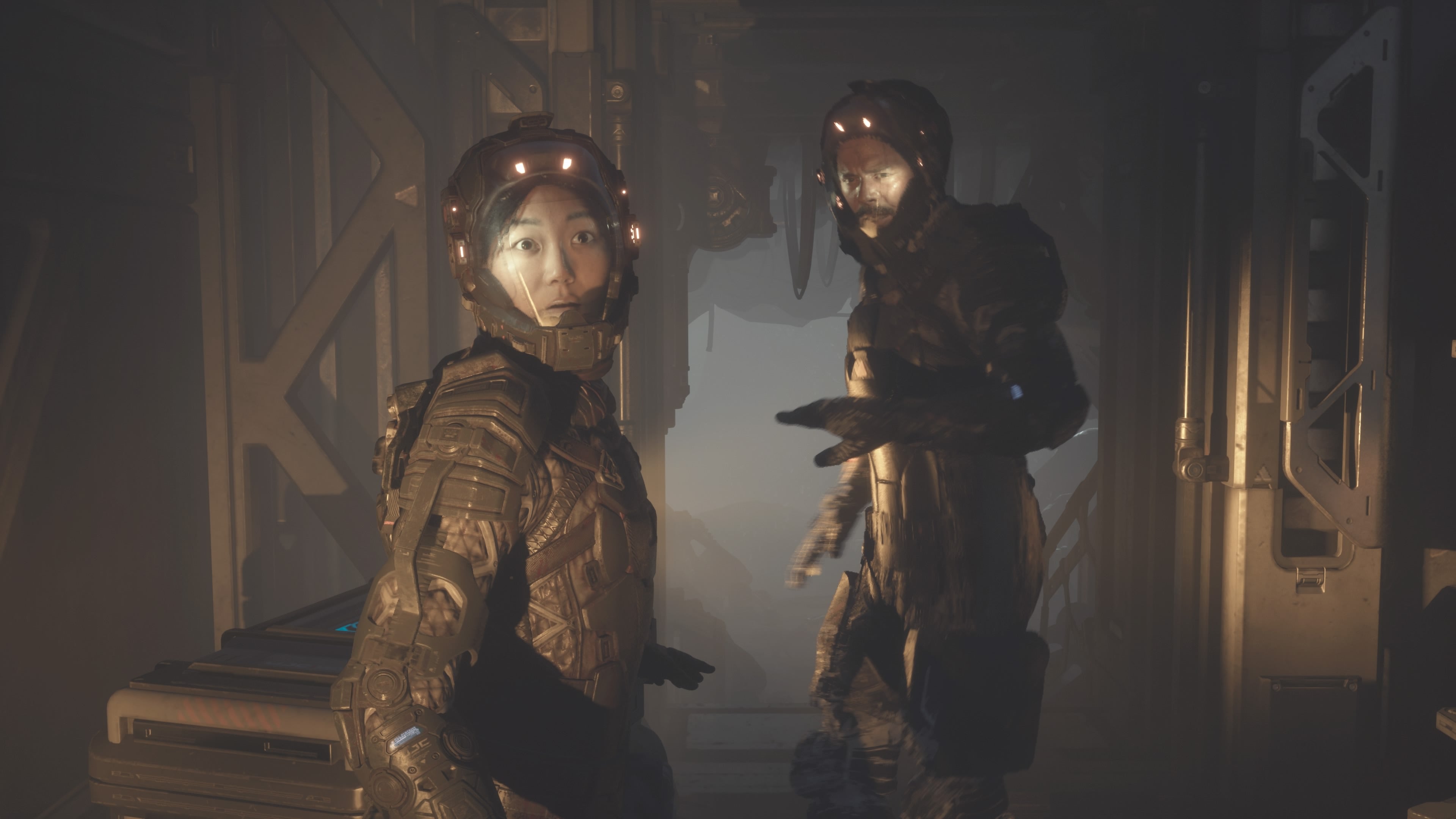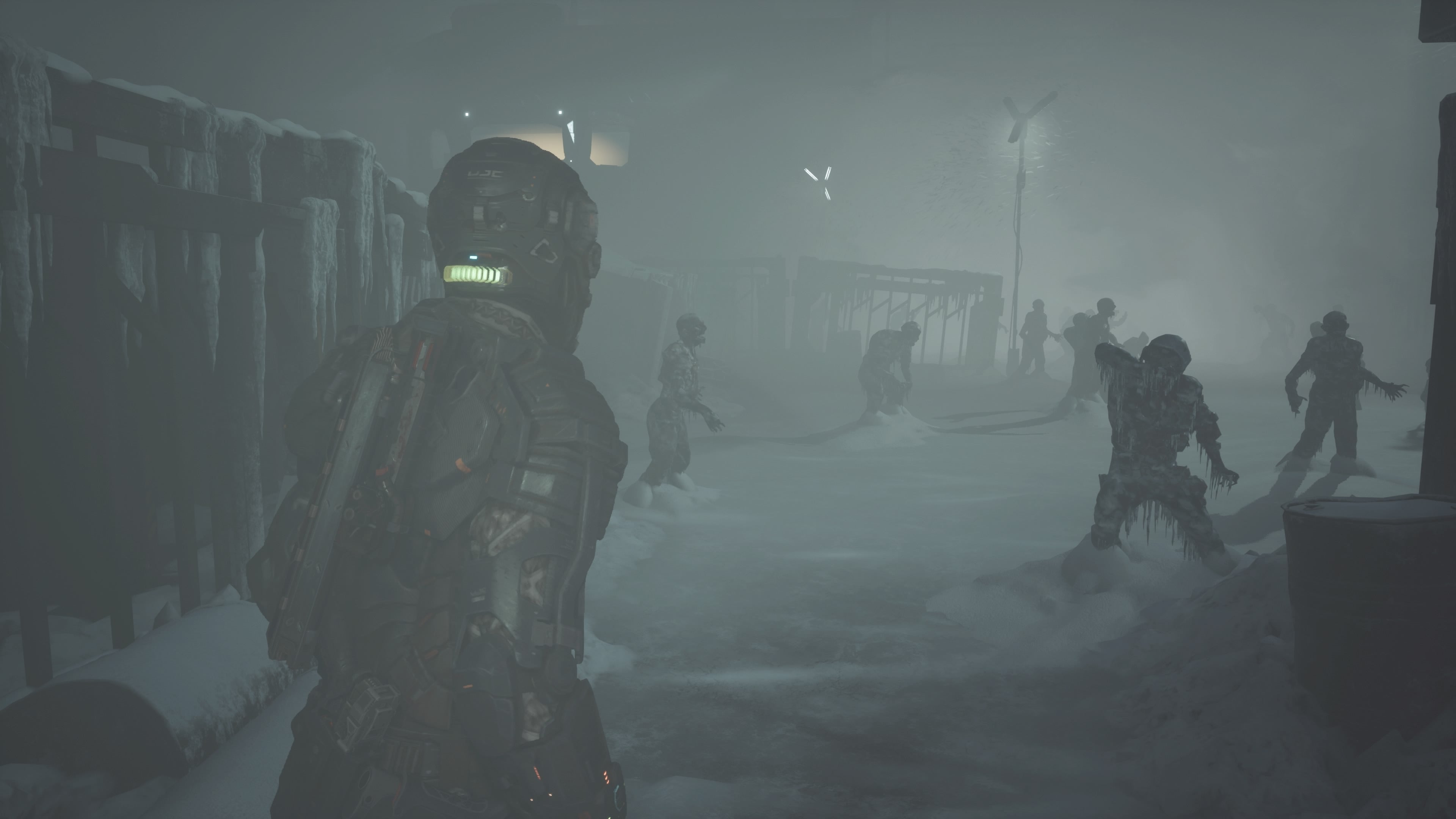Yes, The Callisto Protocol - just like Dead Space - takes place in deepest, darkest space hundreds of years from now. Yes, The Callisto Protocol - just like Dead Space - features horrifying zombies that don’t shuffle and moan as much as they screech and barrel towards you. Yes, The Callisto Protocol - just like Dead Space - explores not just the horror of an infectious disease that reanimates the dead, but that of humanity’s cold, blind ambition, too. In some respects, it does these things better than Dead Space; in others, not so much. Either way, I had a bloody good time. Should we be surprised the games share so much DNA given they’ve been created (or co-created, in Dead Space’s case) by the same man? Probably not. Having replayed Dead Space quite recently, Isaac Clark’s ordeal burns bright in my mind, so - consciously and unconsciously - I compared the two pretty much all the way through. With similarities almost too numerous to count - Jacob’s Core health bar, the inventory menu, the dismemberment system, the signature stomp, there’s even a gondola scene! - I suspect it’ll be hard for anyone who’s played Dead Space not to make those comparisons. It’s a shame, really, that Callisto will never be free from Dead Space’s formidable shadow, because what it delivers - decent combat, unsettling environments, masterful light and audio design, effective voice acting - stands utterly on its own merits. Callisto draws much from Dead Space, sure, but it innovates on it, too, evolving both the gunplay and the world around you to avoid fatigue and repetition. No, it’s not perfect; there are some puzzling choices and a palpable lack of agency here - Jacob’s adventure is tourniquet tight and you will very rarely be rewarded for exploring off the beaten path - but if the aim here was to create a spiritual successor to Dead Space, congrats to developer Striking Distance: that’s exactly what it’s done. Rather than an engineer stranded on an abandoned mining ship, in Callisto you play everyman Jacob Lee, a space-age delivery driver that, For Reasons, is imprisoned without charge or trial in Black Iron, a monstrous detention facility housing the galaxy’s most dangerous felons on the moon, Callisto. It’s not the world’s most novel conceit but it does its job, and as Lee recovers from his brutal induction and finds the prison has been infected, so commences his escape attempt. I didn’t care for Lee the way I cared about Clark - even though the latter was mute - and whilst I was certainly intrigued by his unlawful detention, I wasn’t as invested in Lee’s story, either. It’s not that Lee’s dialogue or even delivery wasn’t right; Josh Duhamel gives an impressive performance, as do his co-stars. It’s just another game about another man imprisoned for another crime he didn’t commit and whilst sure, it’s just the vehicle in which to drive the action, it’s a pity the premise couldn’t have been a little more inventive. That aforementioned action, though? Dear lord, it’s sublime. Chopping up the denizens of Callisto is choreographed with grotesque precision, and every shot feels meaty and impactful. Like its spiritual predecessor, Callisto wants you to destroy these things rather than just kill them, so you’ll learn - mostly the hard way - to hobble and maim and dismember your foes rather than instinctively going for the headshot. Interestingly - as the creatures have a tendency to rush up and batter you - there’s a melee system, too, which means Lee has to duck and dodge blows as carefully as he shoots if he’s any chance of escaping alive. But that’s not all. You’ll also learn to stealth kill - a handy skill, indeed, given ammo scarcity that somehow strikes the precise balance between too mean and too generous - and you can draw on environmental hazards like exploding pods to help boost your odds, too. Occasionally, you’ll encounter formidable security robots and will have to decide whether to sneak past or tackle them head-on. And if it all goes to hell - literally - and you find yourself without ammo, you can pull out your trusty baton and use that instead (pro tip: I’d recommend you upgrade it sooner rather than later. You’re welcome). Fights can feel gloriously tough - occasionally unfairly so - but that’s okay; the more you die, the more you’ll get to witness Lee’s gleefully gory death animations. And thanks to an excellent checkpoint system and the option to make manual saves, too, replaying sections rarely feels frustrating (besides one massively annoying elevator ride). Halfway through, you’ll find yourself deep underground and crawling through tunnels where dozens of a new breed of terrifying denizens await you. Here, however, you’ll need to move slowly if you’re to have any chance to escape unscathed. And yes, initially at first, this unexpected section really ratchets up the tension. Later, though, when you realise they have the AI of a shopping cart and the numerous daubings that ominously instruct “don’t make a sound” should just say “don’t run”, the fear ebbs away. It’s hard to be scared of anything that can bump into you and seemingly not know that you’re there, even when you’re pulling off noisy stealth kills and stomping corpses for ammo. It’s not just the enemies that look good, by the way. The lighting direction is gobsmackingly brilliant and whilst, occasionally, it can be a little too “helpful” in highlighting paths forward, the masterful use of light and shadow really showcases Callisto’s disgustingly glorious environments. So, too, is the audio design, although I’ll admit that within an hour or two, I realised that the screams and groans were usually ambient rather than attached to a particular goon lurking around a corner. And it’s gorgeous; the blood, the gore, the stickiness of wet miscellaneous meat that rots in corners. No, The Callisto Protocol does not deliver the deep environmental storytelling I so love in Dead Space; yes, there are more varied backdrops, but they only feel like set pieces rather than characters all of their own, such as Dead Space’s Ishimura. A shame, really, that those detailed environments couldn’t tell us more about the secrets of Black Iron and the people who’d gone before us. What this is not, however, is cerebral. There aren’t really any puzzles - well, nothing beyond move-this-crate-here and endless inventory management - and there’s one particular enemy, which I’ll call Sackboy (it’s a head in a fleshy bag thing), which always seems to attack before you even bloody see it. And even when you think the game is opening up and giving you a chance to explore, I can unceremoniously confirm that it is not; branching paths are almost always gated off, be it by rubble or crates or a curiously-placed dead end. You can’t walk about when listening to audio logs, either, an outrageous oversight that removes all incentives to slow down and savour this kind of context. Even if you did want to listen to one, it’s up to you to remember who left it; the inventory doesn’t bother to notify you which logs are new and which ones you’ve already listened to. You don’t expand your inventory gradually as much as go from one extreme to the other halfway through, and even then, you’ll find yourself forever dropping batteries for the GRP - your special gravity glove - to make room for items that can be sold for a higher price to help you upgrade your weapons. I also found the GRP’s spin on stasis sadly lacking, too. All too often, I’d use it to yank enemies towards me only to run out of power, have the zombie drop in front of me, and get smacked in the face. Admittedly, I focussed on levelling up my weapons rather than my GRP, so this could be a problem of my own making, but by the time I was halfway through, I barely used my telekinesis powers at all. Perhaps notably of all, what it lacks most is Dead Space’s cloying atmosphere and thrilling story. I don’t suppose it’ll matter to some - The Callisto Protocol gets so much else right, it feels a little churlish to complain about it - but it’s something to bear in mind if you have to choose between Callisto and Dead Space’s upcoming remake and value storytelling above combat. Ultimately, the Callisto Protocol’s frenzied action and brutal battles have still impressed me in all the right ways, drawing on all that makes Dead Space brilliant and building upon that impressive framework. No, it hasn’t got it all right and no, it’s not anywhere near as scary as I was expecting. But if you, like me, are coming into The Callisto Protocol thinking it’s a shallow facsimile of Dead Space? Well, not quite.

